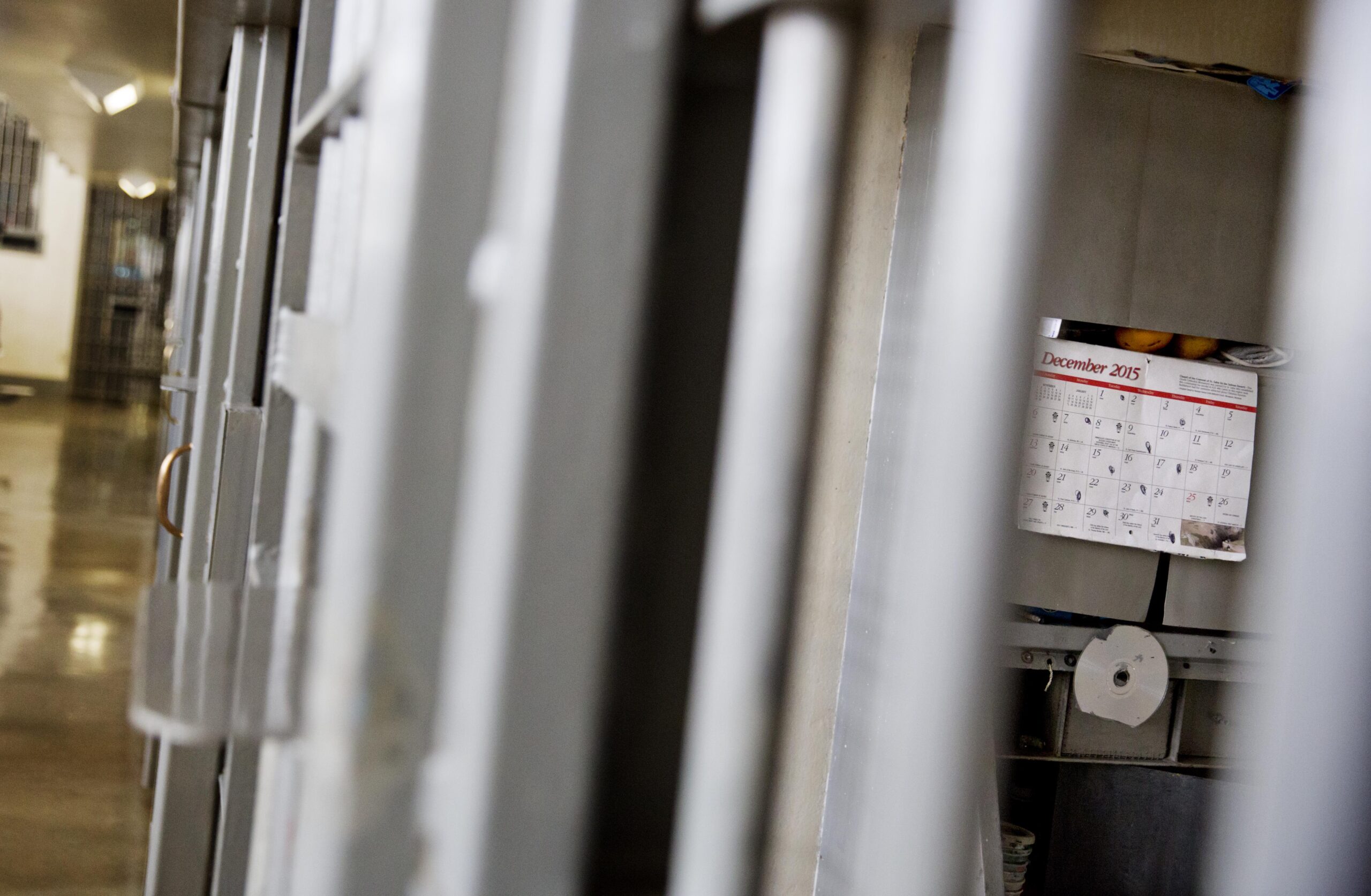While jail staff failed to recognize and adequately address the mental state and physical decline of a man who died in a Georgia jail from complications of dehydration, no one intentionally or criminally caused his death, a special investigative grand jury found.
Shali Tilson was arrested in March 2018 on misdemeanor charges of obstruction of justice and disorderly conduct and booked into the Rockdale County jail, about 25 miles east of Atlanta. The Georgia Bureau of Investigation medical examiner’s office found that he died nine days later from blood clots in his lungs caused by severe dehydration.
After reviewing the GBI file and investigating on her own, Rockdale County District Attorney Alisha said in a statement this week that she decided the case merited a deeper look. A special investigative grand jury was formed in May to examine the circumstances surrounding Tilson’s death.
The grand jury’s report, signed by a judge on Sept. 19 and made public this week, found that “medical, mental health and jail staff, through complacency, reluctance, assumptions and lack of procedures, training, leadership and adherence to policy, failed to recognize and address the mental state and physical decline of Shali Tilson.”
While the grand jury found that “this tragic death was preventable,” the report says there’s no evidence anyone criminally or intentionally caused Tilson’s death, purposely withheld water from Tilson or consciously ignored signs of his physical distress.
The sheriff’s office, which controls the jail, has received the grand jury’s findings and recommendations and “has already begun implementation of substantial measures designed to prevent the recurrence of a similar incident,” according to a statement on its Facebook page.
A lawsuit filed by Tilson’s parents against Sheriff Eric Levett and several deputies is pending. Earlier this month, their lawyers released videos that they say show Tilson was treated inhumanely in the hours before his death on March 12, 2018.
Tilson’s mother said when the videos were released that she wanted the sheriff removed from office and the deputies held accountable for her son’s death.
“The family is devastated that no one will be held criminally liable for Shali’s death,” attorney Mawuli Davis said in an emailed statement. “However, the struggle for Justice for Shali is far from over.”
The grand jury reviewed hundreds of pages of documents, watched hours of video, visited the jail and questioned more than 60 witnesses, the 84-page report says. The grand jury had an investigative role and did not have the authority to indict anyone.
Tilson was arrested on March 3, 2018, and his family has said he was in the midst of a mental health crisis when he arrived at the jail. Although the officer who arrested him said he thought Tilson was on drugs, the grand jury report says a urine sample collected for testing was thrown out without being tested.
Tilson was ultimately placed on suicide watch in a padded cell with no bed or other furniture or any way to access water on his own, according to the grand jury report, which adds that it was unable to find anyone who could explain why. The required explanatory paperwork was not completed, the report noted.
The report says the time Tilson spent in the padded cell was “excessive,” and that he was “confined in this cell with no bed or blanket, constant light and little resources to care for his own needs.”
Jailers assigned to the booking area outside the padded cell are responsible for providing meals and drinks and for doing suicide checks every 15 minutes when someone is on suicide watch, the report says. But no deputy checked on Tilson for about three and a half hours the day he died, and a deputy later falsified the suicide watch log, the report says.
An intercom system that allows a person held in the padded cell “has not worked for several years,” the grand jury found. Video from his final day appears to show Tilson pressing the intercom button.
The grand jury made recommendations to prevent similar deaths. They include: requiring drug testing for people exhibiting erratic or bizarre behavior; improving monitoring of people being held in the jail; improving communications between mental, medical and jail staff; specific guidelines for the use of padded cells; and providing additional training for jail staff.
The grand jury also recommended that the district attorney review the actions of the deputy who admitted falsifying the suicide watch log, who no longer works for the sheriff’s office, for possible prosecution. Johnson’s office said she plans to follow that recommendation.









